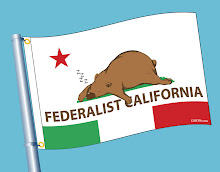Marbury v Madison, 5 US (2 Cranch) 137, 174, 176; 2 LE
60 (1803) reveals that "All laws which are repugnant to the Constitution are null and void."
Miranda v Arizona, 384 US 436, 491; 86 S Ct 1602; 16 L Ed
2d 694 (1966) reveals that "Where rights secured by the Constitution are involved, there can be no legislation which would abrogate them."
Norton v Shelby County, Tennessee, 118 US 425, 442; 6 S Ct 1121; 30 L Ed 178 (1886) reveals that "An unconstitutional act is not law; it confers no rights; it imposes no duties; affords no protection; creates no office. It is as inoperative as though it had never been passed."
West Virginia State Board of Education v Barnette, 319 US 624, 638; 63 S Ct 1178; 87 L Ed 1628 (1943) "The very purpose of a Bill of Rights was to withdraw certain subjects from the vicissitudes of political controversy, to place them beyond the reach of majorities and officials and to establish them as legal principles to be applied by the courts. One's right to life, liberty and property, to free speech, a free press, freedom of worship and assembly, and other fundamental rights may not be submitted to vote; they depend on the outcome of no election."
City of Oak Ridge v Diana Ruth Brown (Tenn. Ct. App., Case No. E2004-01574-COA-R3-CV, 2005 WL 1996620, 19 August 2005 lv app den 2006) reveals that a law is unconstitutional which forbids what the U.S. Constitution allows
Last I checked the law of the land is the Constitution and it tells us we have the right to bear arms. If it infringes upon our Constitutional rights, IT IS NOT A LAW and we have no obligation to it.
Coming to Grips with Gripes
1 hour ago






























My, living by the decisions of the U.S. Supreme Court could land a body in jail these days.
ReplyDeleteAwesome compilation, sir.